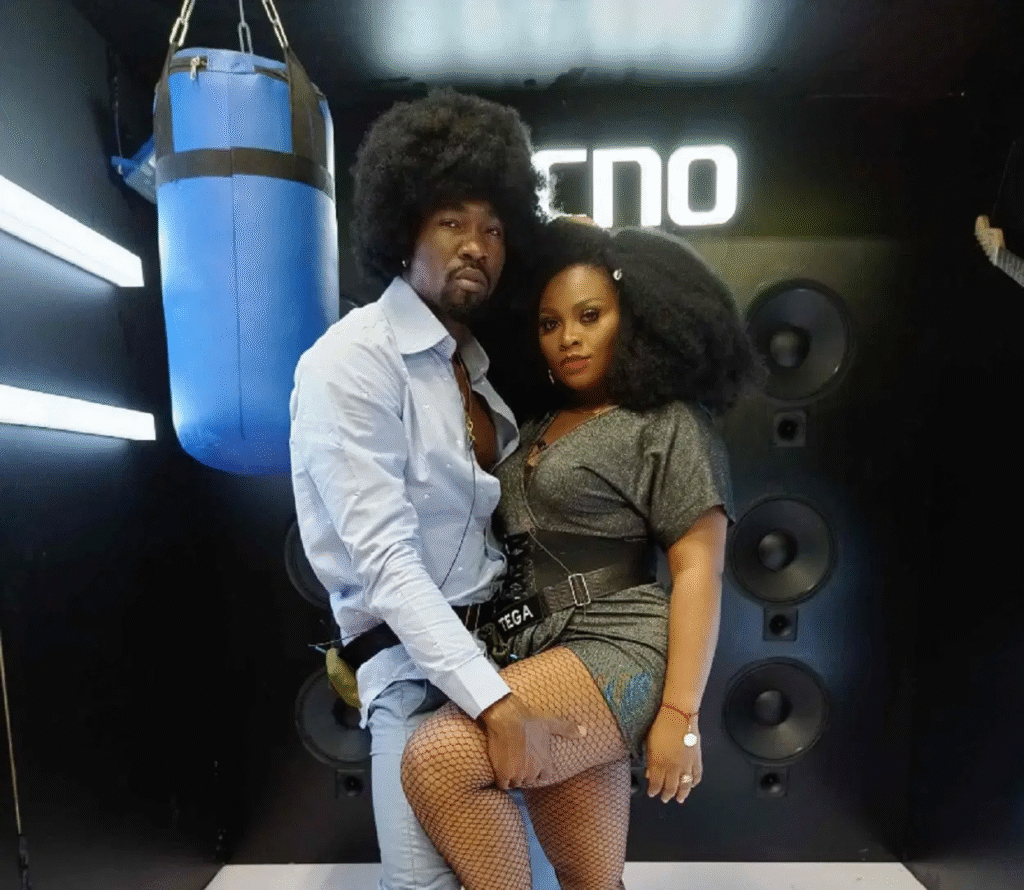
Every year, Big Brother Naija begins, and with it, a familiar, ugly ritual. The show, a self-proclaimed social experiment, invariably becomes a cultural tribunal where the unwritten laws of the game’s fandom are enforced in real-time. And the most consistently prosecuted crime? A woman’s ownership of her own desire.
We have seen this play out with a grim predictability. BamBam was the “fake church girl.” Tega was the “disgraceful wife.” Tolani Baj was “desperate.” Last season, it was Chinwe. Now, in the show’s tenth season, the cycle has found its newest target: Isabella.
The inciting incident was, by BBNaija standards, almost mundane. An intimate, consensual moment between Isabella Georgewill and KayinKumi Ajibade—kissing, petting, culminating in him burying his face in her chest after she lifted her shirt. The reaction, however, was anything but mundane. The internet erupted, not with a discussion about two adults exploring a connection, but with a targeted attack. Isabella was branded “shameless,” and her status as a mother was immediately weaponized as a tool of shame.
KayinKumi, the equally enthusiastic participant? He was a footnote. An accessory to her “crime.” When his role was pointed out, the tired refrain echoed across social media: “It’s different. He’s a man.”
Trust me, this wasn’t about protecting public morals within the game, it’s the tired game of enforcing control. Slut-shaming is a social cudgel used to beat women who deviate from the prescribed roles of virginal maiden or desexualized mother. In the high-stakes, hyper-visible arena of BBNaija, this shaming is not just a byproduct; it’s a strategic part of the game, wielded by viewers and rival fanbases to diminish a woman’s character and, by extension, her chances of winning.
The Anatomy of the Shaming
The triggers for this public condemnation are varied, but they all lead to the same verdict. A woman is shamed not just for having sex, but for the very performance of sexuality itself.
- If she initiates, she is “desperate.” We saw this with Tolani Baj, whose forwardness was endlessly mocked. A woman who knows what she wants is re-cast as a woman who is “throwing herself” at a man.
- If she is an enthusiastic participant, she is “shameless.” The joy or pleasure she displays is seen as proof of her lack of “home training.” Isabella’s consensual act was condemned not just because it happened, but because she seemed to be an active agent in it.
- If her body is deemed “too visible,” she is a “prostitute.” Angel Smith in Season 6 was relentlessly shamed for her choice of clothing long before any specific act. Her fashion was used as Exhibit A in a pre-emptive character assassination.
- If she is with the “wrong” man, or married, she is a “disgrace.” Tega’s case remains the most brutal example. As a married woman, her actions were seen as a betrayal of not just her husband, but of the institution of marriage itself. Boma, the man involved, walked away with his reputation largely intact.
- Even if she is with her boyfriend: Last season’s case of Chinwe and Zion, ‘Zinwe’ fits this pattern perfectly. Clips of their moments under the duvet were framed not as a mutual connection, but as Chinwe’s calculated attempt to “trap” a fan favourite. She was the seductress, the strategist while he was the innocent man being pursued. Even fellow housemates used her having sex with Zion, her boyfriend, against her. Her agency was her crime.
The BBNaija Scandal Scorecard: A Visual Timeline of Hypocrisy

A look back at BBNaija’s history reveals a stark, gendered timeline of who is allowed to be flawed and who is forgiven. For men, a “scandal” is often a stepping stone to a stronger brand. For women, it’s a stain that rarely washes out.
BamBam (Season 3) had a consensual sexual encounter with Teddy A in a confined space. Public reaction was harsh — she was called a “fake church girl” who faked her conservative persona, and she faced intense shaming. It took over two years for forgiveness, and redemption only came after her marriage to Teddy A and becoming a mother. The lasting narrative around her became: “She was wild but cleaned up her image to become a wife.”
Tega (Season 6) had a sexual encounter with Boma while married. The public reaction was one of unprecedented slut-shaming, death threats, and calls for public apology to her husband and the nation. Forgiveness was partial at best — the incident permanently defines her public identity. The lasting perception is: “The shameless married woman who embarrassed her family on TV.”
Chinwe (Season 9) had consensual intimate moments with her boyfriend, Zion, under the duvet. She was labeled “desperate” and a “strategist” trying to “hold a man down” for votes. Forgiveness never came. The narrative focused solely on her desperation, not on the mutual nature of the relationship. The lasting image of her is: *“The girl who was doing too much for Zion.”
Isabella (Season 10) engaged in heavy petting and exposed her chest consensually. She was immediately shamed as a “bad mother” who was setting a poor example for her son. The public response remains ongoing — her motherhood continues to be used against her as a weapon. The lasting narrative about her is: “The mother with no shame.”
Erica (Season 5) had intimate encounters with Kiddwaya, which were portrayed as part of an emotional spiral that ultimately led to her disqualification. She was called “promiscuous” and “out of control,” and her sexual moments were cited as evidence of her “losing her game for a man.” The backlash is still ongoing. Despite having a massive fanbase (called the “Elites”), the narrative continues to be used by critics to discredit her. Her lasting label became: “She let a man and her emotions ruin her game.”
Pere (Season 6) combined intimidation tactics with overt sexual advances toward multiple women. He was initially criticized, but was eventually rebranded as a desirable “Alpha Male” and “The General.” Forgiveness came quickly — within 1–2 weeks. His actions instead helped him build a powerful and loyal fanbase. The lasting narrative about him is: “A strong man who knows what he wants.”
Cross (Season 6 & All Stars) openly flirted with and kissed multiple women. Instead of backlash, he was celebrated as a “cruise master” and the “life of the party.” His actions were seen purely as entertainment. Forgiveness wasn’t needed; in fact, he was rewarded for his behavior. His lasting image? “The fun-loving guy, the ultimate lover boy.”
Zion (Season 9) was the other half of the intimate moments with Chinwe. Yet, unlike her, he was portrayed as an irresistible prize. His fanbase defended him, placing all the blame on Chinwe. Forgiveness was instant — he never needed redemption. The lasting narrative? “The cool guy all the girls wanted.”
Kiddwaya (Season 5) was the other half of the intimate moments with Erica. He was seen as a carefree “billionaire’s son” simply enjoying life. His actions were framed as part of the “cruise” culture. He faced no backlash and needed no forgiveness. His reputation remains: “The ultimate playboy who can’t be tied down.”
Final thoughts:
The outrage directed at Isabella isn’t truly about her son, just as the outrage against Tega wasn’t truly about the sanctity of marriage. Within the BBNaija game, it is about audience perception. It is about reminding all female housemates, present and future, that there are unwritten rules, and the price for breaking them is public humiliation, lost followers, and a damaged brand that can affect their post-show careers.
Until we, the viewers, start questioning the narratives peddled by blogs and social media, and until we demand the same accountability from men that we viciously exact from women, this cycle will continue. The question is not whether the next BBNaija season will feature another woman being shamed. The question is whether we will once again agree to pick up the stones.







